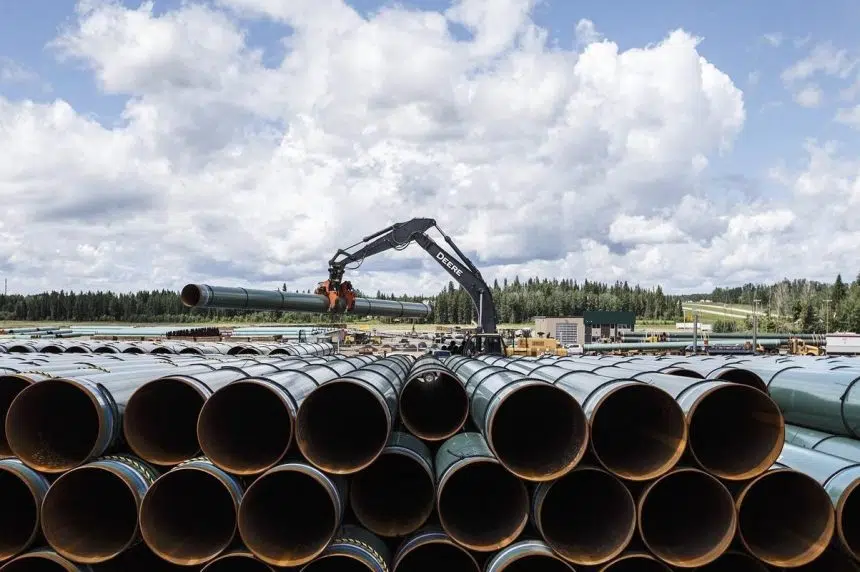The Federal Court of Appeal is going to allow six of the 12 proposed legal challenges to the Trans Mountain pipeline project to proceed.
Before the decision on Wednesday afternoon, Regina Chamber of Commerce CEO John Hopkins spoke to reporters after a morning news conference about a report on business competitiveness in Saskatchewan.
He said the biggest challenge facing Regina’s economy right now is building infrastructure to get products to market, primarily pipelines.
“There is a group within this country that doesn’t see eye to eye with that and wants to leave it in the ground,” said Hopkins. “Our message is we need to ensure that we get products to market, create opportunities for people (and) create tax revenues for people so that we can continue to have the quality of life that we do in Canada.”
Hopkins called the pipeline and energy industry “absolutely vital” to every Canadian because it drives jobs, investment and tax revenues to all levels of government. He added thousands of jobs are also at risk across the country without project approval.
The court tore up the original federal government approval of the pipeline expansion last year, citing an insufficient environmental review and inadequate consultations with Indigenous communities.
The federal Liberals approved the project again in June following more consultations, but opponents say they were still inadequate.
Hopkins expressed frustration following years of regulatory delays which eventually led to the federal government purchasing the pipeline from Kinder Morgan in 2018.
“If the Government of Canada can’t get this infrastructure built — the Government of Canada — what private sector player is going to be able to do it? It’s almost impossible,” said Hopkins.
Wednesday’s ruling will allow challenges to the project focused on Indigenous consultation but the court has dismissed several claims centred on environmental concerns.
Hopkins believes it’s possible for the environment and the pipeline to move forward hand in hand.
“Are we laggards at protecting our environment? Absolutely not,” he said. “We’re one of the best in the world at protecting our environment.
“We need to ensure that we continue to have these types of infrastructure projects move ahead as opposed to getting stalled in this regulatory morass.”
— With files from the Canadian Press.











